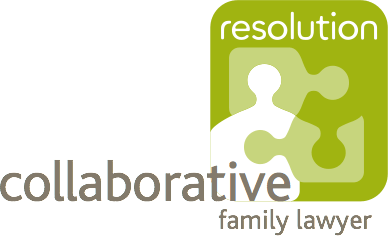One Third of Separated Parents Have Found Child Contact Arrangements Difficult During Covid-19 Pandemic
Recent research from the family law community Resolution has found that one third of separated or divorced parents have found it difficult to maintain their usual child contact arrangements during the ongoing Covid-19 pandemic.
The findings came after parents were surveyed for Resolution’s ‘Good Divorce Week’, which took place towards the end of 2021. Resolution’s research also indicated that nearly three in ten people have experienced more stress and tension in their relationship with their ex-partner since the beginning of the pandemic.
There are a number of potential reasons which serve to explain why the pandemic has put a strain on separated parents, especially with regards to making arrangements for children. Thankfully, as we discuss in this post, there are also various solutions to these issues, many of which don’t include the use of costly and time-consuming court proceedings – such as the use of mediation.
How has the pandemic influenced child contact arrangements?
Lockdowns and isolation
The first and most obvious explanation for the increase in issues related to child contact arrangements is the physical restrictions brought about by the pandemic. With national lockdowns disrupting the majority of 2020 and the first half of 2021, separated parents understandably found it difficult to find an equal balance or to maintain a previously agreed schedule.
This has especially been the case for separated parents who live far apart and would otherwise find it difficult to travel to pick up their children.
Uncertainty over rules and guidelines
Government guidance on lockdowns and social distancing has not always been straightforward and has frequently led to confusion over what is and is not allowed. When restrictions were at their tightest, it was stated that children could continue to travel between separated parents – but it has ultimately always been down to parents to make their own decisions.
This has led to separated parents disagreeing over child contact arrangements and going back on previous agreements on the basis that they want to reduce the spread of the virus as much as possible, or simply because neither is sure what they can and cannot do.
Parents using the uncertainty to their advantage
This has led to some situations where separated parents are using the general situation to their own advantage. Even if they know that maintaining a contact arrangement is more than possible and is not against the rules, some parents have refused contact on this basis alone.
What steps can you take to find a resolution for child contact arrangements?
Informal agreement
If you have a strong relationship with your former partner, it may be possible to come together to make an informal agreement that is a better reflection of your circumstances and the way the pandemic may have affected the way you share parenting duties.
Mediation
Mediation is a voluntary process that both parents can undertake and is designed to resolve any disputes (such as child contact arrangements) that have emerged from a separation.
The process involves a neutral family mediator meeting with both you and your former partner to discuss the issues related to child contact arrangements. During mediation sessions, both parties are given the opportunity to go through their options and agree on the steps that need to be taken, while the mediator serves to facilitate the discussion.
The mediator cannot provide any specific legal advice, nor can they take sides – they are simply present to ensure the discussion is productive and to draft an official document if an agreement can be reached. This document can be drafted into a consent order.
It may also be possible to engage in child inclusive mediation, which sees a family mediator who is trained as a child consultant speaking to your child/children as a part of the process.
Collaborative law
In collaborative law, both you and your former partner both instruct a collaboratively trained family lawyer. You then attend face to face meetings with said family lawyers, with the aim being to find a new child contact arrangement that is in everyone’s best interests.
Court proceedings
Should you be unable to come to an agreement with your former partner about child contact arrangements, even after engaging in mediation or collaborative law, you may need to make an application to court.
However, it should be noted that, before court proceedings are even considered, it must be shown that you have first attended a Mediation Information and Assessment Meeting (MIAM).
Get sensitive, expert support with child contact arrangements
At Atkins Hope, our friendly and highly experienced child law solicitors are here to help you find a positive solution and come to an agreement over child contact arrangements.
We have a wide range of expertise in various methods of resolving disputes related to children, including for mediation and collaborative law. Our Head of Matrimonial and Children work, Juliet Adelman is a qualified mediator and can lend her support if this is the approach you would like to take.
For further information, give us a call at your local Atkins Hope office in Croydon, Medway or Blackheath.








